Home>diy>Building & Construction>What Does A Construction Project Coordinator Do
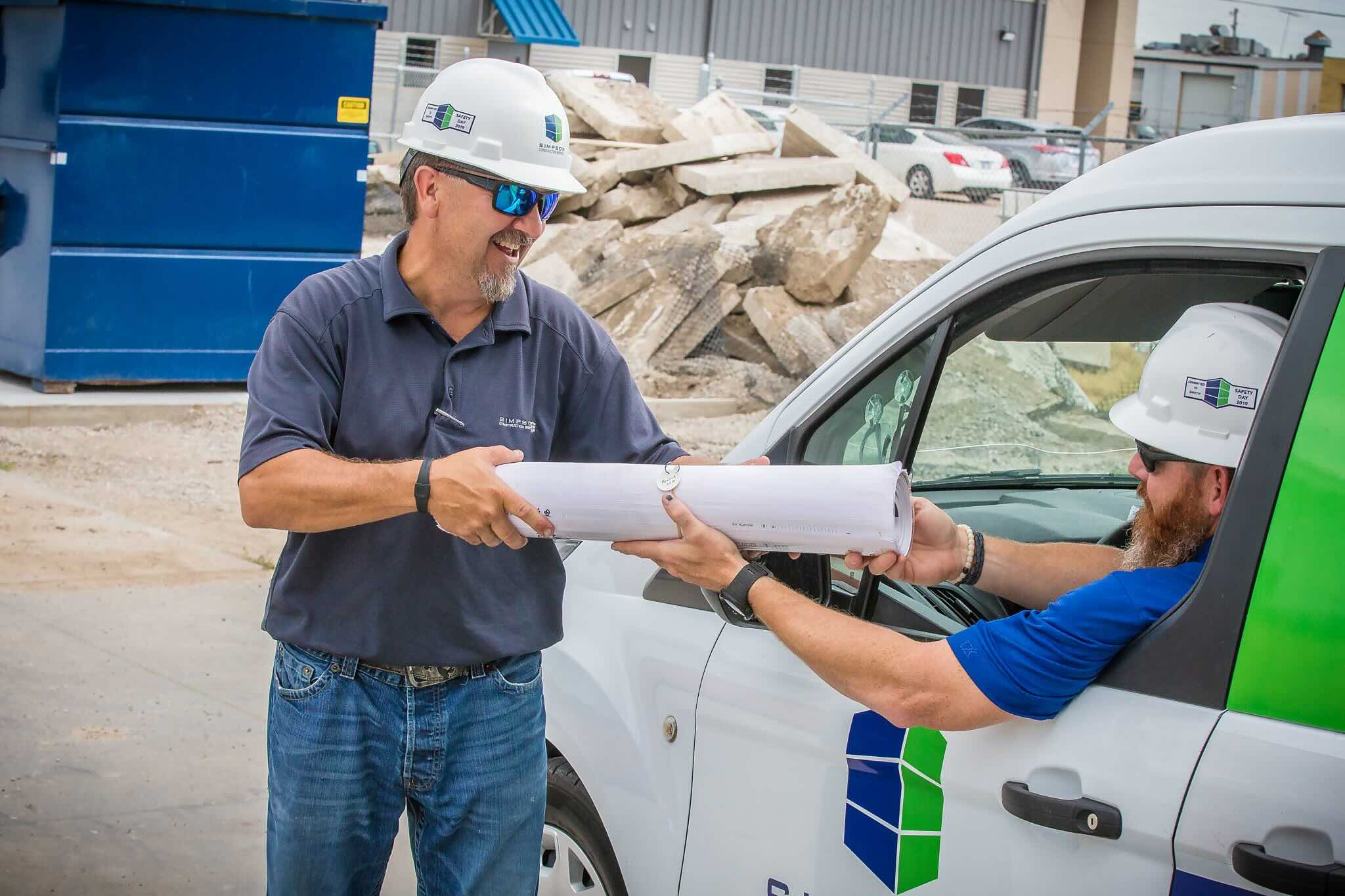

Building & Construction
What Does A Construction Project Coordinator Do
Modified: August 28, 2024
Discover the role and responsibilities of a construction project coordinator in the building construction industry. Gain valuable insights and tips to excel in this dynamic field.
(Many of the links in this article redirect to a specific reviewed product. Your purchase of these products through affiliate links helps to generate commission for Storables.com, at no extra cost. Learn more)
Introduction
Welcome to the world of construction project coordination! In the fast-paced, dynamic construction industry, there is a critical need for professionals who can efficiently manage and coordinate various aspects of a construction project. This is where the role of a Construction Project Coordinator comes into play.
A Construction Project Coordinator plays a vital role in ensuring the successful completion of construction projects. They serve as a liaison between the project team, contractors, clients, and other stakeholders, ensuring effective communication and coordination throughout the project lifecycle.
From planning and scheduling to cost control and problem-solving, a Construction Project Coordinator wears many hats to ensure the smooth and timely execution of construction projects. In this article, we will delve deeper into the responsibilities, skills, and qualifications required for this role, and how a Construction Project Coordinator collaborates with stakeholders to deliver successful projects.
So, whether you are considering a career as a Construction Project Coordinator or simply want to gain a better understanding of their role, join us as we delve into the world of construction project coordination.
Key Takeaways:
- A Construction Project Coordinator is the linchpin of successful construction projects, managing documentation, schedules, budgets, compliance, and problem-solving to ensure seamless execution and stakeholder collaboration.
- The role demands a diverse skill set, including construction knowledge, project management skills, communication, problem-solving, and financial acumen, making the Construction Project Coordinator an indispensable asset in the construction industry.
Read more: What Is A BIM Coordinator?
Role of a Construction Project Coordinator
A Construction Project Coordinator plays a pivotal role in the planning, execution, and completion of construction projects. They act as the central point of contact, responsible for coordinating and overseeing various project activities to ensure a seamless workflow and timely delivery.
One of the core responsibilities of a Construction Project Coordinator is to manage the project documentation. They are responsible for organizing and maintaining project files, contracts, permits, and other important documents. This includes ensuring that all necessary permits and licenses are obtained and that project documentation is accurate and up to date.
Additionally, a Construction Project Coordinator is responsible for organizing and scheduling tasks. They work closely with the project team, subcontractors, and vendors to develop detailed project schedules and ensure that all activities are properly planned and coordinated. This involves creating and updating project timelines, identifying critical paths, and allocating resources effectively.
Monitoring project progress is another crucial aspect of a Construction Project Coordinator’s role. They regularly track and report on project milestones, ensuring that tasks are completed on time and within budget. This involves conducting site visits, attending project meetings, and closely liaising with team members and stakeholders to assess progress and address any issues or delays promptly.
Inevitably, construction projects are not without challenges. A Construction Project Coordinator is responsible for problem-solving and troubleshooting throughout the project lifecycle. They analyze and resolve issues that may arise, such as design conflicts, material shortages, or unforeseen circumstances, to keep the project on track and minimize disruptions.
Budget management and cost control are also key responsibilities of a Construction Project Coordinator. They work closely with project managers and financial teams to develop and track project budgets, ensuring that costs are controlled and that projects stay within the allocated budget. This includes reviewing and approving invoices, monitoring expenses, and identifying cost-saving opportunities.
Lastly, a Construction Project Coordinator must ensure compliance with regulations and industry standards. They stay updated on relevant codes, permits, and safety regulations to ensure that all construction activities meet legal and regulatory requirements. This includes conducting regular site inspections and audits to ensure adherence to safety protocols and quality standards.
In summary, a Construction Project Coordinator acts as the glue that holds the project together. Their role encompasses various responsibilities, from managing project documentation and organizing tasks to monitoring progress, problem-solving, budget management, and ensuring compliance. By effectively coordinating and collaborating with different stakeholders, a Construction Project Coordinator plays a vital role in delivering successful construction projects.
Responsibilities of a Construction Project Coordinator
A Construction Project Coordinator has a wide range of responsibilities that contribute to the successful completion of construction projects. These responsibilities can vary depending on the size and scope of the project, but generally encompass the following key areas:
- Project Documentation: A Construction Project Coordinator is responsible for managing and organizing project documentation. This includes maintaining project files, contracts, permits, and other important documents. They ensure that all necessary permits and licenses are obtained and that project documentation is accurate and up to date.
- Task Organization and Scheduling: One of the primary responsibilities of a Construction Project Coordinator is to organize and schedule project tasks. They work closely with the project team, subcontractors, and vendors to develop detailed project schedules. They ensure that all activities are properly planned and coordinated by creating and updating project timelines, identifying critical paths, and allocating resources effectively.
- Project Progress Monitoring: A Construction Project Coordinator closely monitors the progress of the project. They track and report on project milestones, ensuring that tasks are completed on time and within budget. They conduct regular site visits, attend project meetings, and liaise with team members and stakeholders to assess progress and address any issues or delays promptly.
- Problem-Solving and Troubleshooting: Construction projects often encounter challenges, and a Construction Project Coordinator plays a crucial role in problem-solving and troubleshooting. They analyze and resolve issues that arise during the project, such as design conflicts, material shortages, or unforeseen circumstances. They work with the project team to find solutions and keep the project on track.
- Budget Management and Cost Control: A Construction Project Coordinator works closely with project managers and financial teams to develop and track project budgets. They ensure that costs are controlled and that projects stay within the allocated budget. This includes reviewing and approving invoices, monitoring expenses, and identifying cost-saving opportunities.
- Ensuring Compliance: A Construction Project Coordinator ensures compliance with regulations and industry standards throughout the project. They stay updated on relevant codes, permits, and safety regulations to ensure that construction activities meet legal and regulatory requirements. They conduct regular site inspections and audits to ensure adherence to safety protocols and quality standards.
- Communication and Stakeholder Management: Effective communication and stakeholder management are crucial responsibilities of a Construction Project Coordinator. They serve as the main point of contact between the project team, contractors, clients, and other stakeholders. They ensure that information is effectively communicated and that everyone is aligned with project goals and objectives.
These responsibilities require strong organizational skills, attention to detail, and the ability to multitask effectively. A Construction Project Coordinator plays a critical role in ensuring that construction projects are executed smoothly, on time, and within budget.
Skills and Qualifications Required
A successful Construction Project Coordinator possesses a combination of technical skills, project management knowledge, and personal attributes. Here are some of the key skills and qualifications required for this role:
- Construction Knowledge: A Construction Project Coordinator should have a solid understanding of construction principles, terminology, and processes. They should be familiar with various construction methodologies, materials, and techniques to effectively coordinate project activities.
- Project Management Skills: Strong project management skills are essential for a Construction Project Coordinator. They should have the ability to plan, organize, and coordinate multiple tasks and resources to ensure successful project execution. Familiarity with project management software and tools is also beneficial.
- Communication and Interpersonal Skills: Effective communication skills are crucial for a Construction Project Coordinator. They need to be able to clearly communicate project requirements, expectations, and updates to the project team, stakeholders, and contractors. Strong interpersonal skills are also important for building and maintaining relationships with various stakeholders.
- Attention to Detail: Construction projects involve numerous details and specifications. A Construction Project Coordinator must have strong attention to detail to ensure that project documentation, schedules, and activities are accurate and aligned with the project requirements.
- Problem-Solving Abilities: Construction projects often encounter unexpected challenges and obstacles. A Construction Project Coordinator should be a proactive problem-solver, able to analyze issues, identify solutions, and make sound decisions to keep the project on track.
- Organization and Time Management: The ability to organize and prioritize tasks is vital for a Construction Project Coordinator. They need to manage multiple responsibilities, meet deadlines, and ensure that all project activities are in sync.
- Financial Acumen: A Construction Project Coordinator should have basic financial literacy to manage project budgets, review invoices, and identify cost-saving opportunities. Understanding cost control principles and basic accounting is beneficial.
- Leadership Skills: While a Construction Project Coordinator may not have direct authority over the project team, they should possess leadership qualities to influence and motivate team members. They should be able to foster a collaborative and positive work environment to drive the project’s success.
- Education and Certifications: Many employers prefer candidates with a bachelor’s degree in construction management, engineering, or a related field. Some construction project management certifications, such as the Certified Construction Manager (CCM) or Project Management Professional (PMP) designation, can also enhance job prospects.
- Experience: Previous experience in construction project coordination or related roles is highly valued. It provides practical knowledge of construction processes, industry standards, and stakeholder management.
These skills and qualifications are essential for a Construction Project Coordinator to effectively coordinate and manage construction projects. Continual learning and staying updated on industry trends and advancements are also vital for success in this role.
Collaborating with Stakeholders
Collaboration with stakeholders is a crucial aspect of a Construction Project Coordinator’s role. As the central point of contact, they are responsible for facilitating effective communication and ensuring that all project stakeholders are aligned and working towards common project goals. Here’s how a Construction Project Coordinator collaborates with different stakeholders:
- Project Team: A Construction Project Coordinator works closely with the project team, including architects, engineers, and contractors. They ensure that all team members have a clear understanding of project requirements, timelines, and deliverables. They facilitate regular project meetings and provide support and guidance to the team to ensure smooth project execution.
- Subcontractors and Vendors: Coordinating with subcontractors and vendors is a critical aspect of construction project coordination. A Construction Project Coordinator collaborates with subcontractors to ensure that they have the necessary information and resources to complete their assigned tasks. They coordinate schedules, resolve any issues that may arise, and ensure that subcontractors adhere to project timelines and quality standards. They also work with vendors to manage the procurement and delivery of materials and equipment.
- Clients: The client’s satisfaction is paramount in any construction project. A Construction Project Coordinator maintains regular contact with the client, providing updates on project progress, addressing any concerns or issues, and managing their expectations. They provide a clear line of communication between the project team and the client, ensuring that the project meets their requirements and aligns with their vision.
- Government Authorities and Regulators: Compliance with regulations and obtaining the necessary permits and licenses is essential for construction projects. A Construction Project Coordinator liaises with government authorities and regulators to ensure that all required permits and approvals are obtained. They also ensure that the project adheres to safety protocols, building codes, and environmental regulations.
- Consultants and Design Professionals: Construction projects often involve working with consultants and design professionals such as architects or structural engineers. A Construction Project Coordinator collaborates with these professionals to ensure that project designs are translated into actionable plans. They provide feedback, coordinate design changes, and ensure that all design aspects align with the project’s scope and requirements.
- Community and Public Relations: Some construction projects may have an impact on the local community. A Construction Project Coordinator may collaborate with community stakeholders and local authorities to address any concerns, minimize disruptions, and ensure that the project has a positive impact on the community. They may also manage public relations, providing updates and information to the public about the project’s progress and potential benefits.
Effective collaboration with stakeholders requires strong communication skills, diplomacy, and the ability to build and maintain positive relationships. A Construction Project Coordinator acts as a bridge between various stakeholders, ensuring that information flows smoothly and that everyone remains focused on achieving project objectives.
Read more: What Does A Planner Do In Construction
Managing Project Documentation
Managing project documentation is a critical responsibility of a Construction Project Coordinator. Properly organizing and maintaining project documents ensures that important information is readily accessible, decisions are well-documented, and legal and regulatory requirements are met. Here’s how a Construction Project Coordinator manages project documentation:
- Organizing Project Files: A Construction Project Coordinator establishes a systematic filing system to organize project documentation. They ensure that all documents are stored in a logical and easily navigable manner, making it efficient to retrieve specific information when needed.
- Contracts and Agreements: A Construction Project Coordinator maintains copies of all contracts and agreements, including those with clients, subcontractors, vendors, and consultants. They ensure that contracts are up to date, track key milestones and deliverables, and communicate contract requirements to the relevant parties.
- Permits and Approvals: Construction projects often require various permits and approvals, such as building permits, environmental clearances, and utility connections. A Construction Project Coordinator keeps track of these permits, ensuring that they are obtained in a timely manner. They maintain copies of permits, review their terms and conditions, and ensure that the project activities remain in compliance with the approved permits.
- Change Orders: Construction projects may undergo changes throughout their lifecycle. A Construction Project Coordinator manages change orders, ensuring that any modifications to the scope, cost, or schedule are documented and communicated to relevant stakeholders. They maintain a record of change orders, including the reasons for the changes and the approvals obtained.
- Drawings and Specifications: Detailed drawings and specifications form the foundation of a construction project. A Construction Project Coordinator manages and updates these documents, ensuring that they accurately reflect the project’s design and requirements. They communicate any revisions to the project team, subcontractors, and vendors to ensure that all work aligns with the latest specifications.
- Meeting Minutes and Correspondence: A Construction Project Coordinator documents meeting minutes, capturing key discussions, decisions, and action items. They maintain records of project-related correspondence, such as emails, letters, and memos, to track important communication and ensure that all parties are informed and aligned.
- Health and Safety Documents: Safety is a top priority in construction projects. A Construction Project Coordinator manages and maintains documents related to health and safety, such as safety plans, risk assessments, and incident reports. They ensure that all required safety documentation is readily available and that the project team and subcontractors adhere to safety protocols.
Managing project documentation requires attention to detail, organization, and the use of document management systems or software. By maintaining accurate and up-to-date project documentation, a Construction Project Coordinator ensures transparency, facilitates effective communication, and provides a reliable record of the project’s history and progress. This enables effective decision-making, facilitates regulatory compliance, and contributes to the project’s overall success.
A construction project coordinator is responsible for organizing and overseeing project activities, communicating with stakeholders, and ensuring tasks are completed on time and within budget. They play a crucial role in keeping the project running smoothly and efficiently.
Organizing and Scheduling Tasks
Organizing and scheduling tasks is a fundamental responsibility of a Construction Project Coordinator. Effective task management ensures that all project activities are coordinated and executed in a timely manner, contributing to the overall success of the construction project. Here’s how a Construction Project Coordinator organizes and schedules tasks:
- Establishing Project Objectives: A Construction Project Coordinator works closely with the project team to define project objectives and deliverables. They ensure a clear understanding of project goals to guide task organization and scheduling.
- Work Breakdown Structure: A Construction Project Coordinator develops a work breakdown structure (WBS) that breaks down the project into smaller, manageable tasks. They identify and categorize the different activities required for successful project completion.
- Sequencing Tasks: Once the tasks are identified, a Construction Project Coordinator determines the order in which they need to be executed. They establish task dependencies, ensuring that each task is sequenced correctly for efficient workflow.
- Creating Project Timelines: A Construction Project Coordinator develops project timelines, which outline the start and end dates for each task. They consider the project’s overall schedule, resource availability, and critical paths to create realistic timelines.
- Resource Allocation: A Construction Project Coordinator allocates resources required for each task. They determine the necessary manpower, equipment, and materials to complete the activities within the defined timelines.
- Collaboration and Coordination: A Construction Project Coordinator works closely with the project team, subcontractors, and vendors to ensure that tasks are properly scheduled and coordinated. They communicate task assignments, deliverable timelines, and any changes or updates to the project plan.
- Monitoring Task Progress: A Construction Project Coordinator regularly monitors the progress of tasks. They track the actual start and end dates of each task and compare them against the scheduled timelines. Additionally, they identify any delays or deviations from the original plan and take necessary actions to address them.
- Adjusting and Adapting: Construction projects are dynamic, and changes are inevitable. A Construction Project Coordinator is responsible for adjusting the task schedule as needed to accommodate any changes or unexpected circumstances. They assess the impact of changes on the overall project timeline and communicate revised schedules to the relevant stakeholders.
To effectively organize and schedule tasks, a Construction Project Coordinator may utilize project management software or tools. These tools help streamline task management, improve collaboration, and provide visibility into task progress. Additionally, a Construction Project Coordinator should possess strong organizational and time management skills, attention to detail, and the ability to adapt to changes and prioritize tasks effectively.
By organizing and scheduling tasks efficiently, a Construction Project Coordinator contributes to the seamless execution of the construction project, ensuring that activities are completed on time, resources are optimized, and project milestones are met.
Monitoring Project Progress
Monitoring project progress is an essential responsibility of a Construction Project Coordinator. By closely tracking the status of activities, milestones, and deliverables, they can ensure that the project stays on schedule and identify any issues or obstacles that may affect its successful completion. Here’s how a Construction Project Coordinator monitors project progress:
- Establishing Key Performance Indicators (KPIs): A Construction Project Coordinator works with the project team to establish KPIs that measure project progress. These KPIs may include milestones reached, tasks completed, budget variance, or safety performance. They define the metrics and benchmarks against which progress will be measured.
- Regular Site Visits: To accurately assess project progress, a Construction Project Coordinator conducts regular site visits. By physically observing the construction activities, they can ensure that work is being carried out according to the project plan and specifications. They can identify any potential issues or deviations from the plan, allowing them to take corrective action promptly.
- Project Meetings and Reporting: A Construction Project Coordinator organizes and leads project meetings to review progress. These meetings serve as a platform for team members and stakeholders to share updates, discuss challenges, and collaborate on solutions. The Construction Project Coordinator also prepares progress reports, highlighting achievements, identifying potential risks or delays, and recommending corrective actions to keep the project on track.
- Tracking Task Completion: The Construction Project Coordinator keeps a record of task completion and compares it with the project schedule. They track the actual start and end dates of tasks, the percentage of work completed, and any dependencies or constraints that may impact the workflow. This information helps them monitor individual task progress and identify any deviations from the planned timeline.
- Communication with Project Team: Effective communication with the project team is vital for monitoring progress. The Construction Project Coordinator regularly engages with team members to understand the status of their assigned tasks, address any roadblocks they may face, and provide support or resources as needed. They encourage open communication to promote transparency and ensure that everyone is aware of the project’s progress.
- Tracking Budget and Resources: Alongside project progress, a Construction Project Coordinator monitors budget expenditures and resource utilization. They compare the actual costs against the planned budget, identifying any variances and analyzing their impact on the project’s financial health. By tracking resource utilization, they can ensure that resources are allocated optimally and avoid any resource bottlenecks.
- Risk Assessment and Mitigation: A Construction Project Coordinator continually assesses project risks and takes proactive measures to mitigate them. They identify potential risks that may impact project progress, such as material shortages, adverse weather conditions, or regulatory delays. They develop contingency plans and work collaboratively with the project team to minimize the impact of these risks on the project’s timeline.
- Monitoring Quality Assurance: A Construction Project Coordinator ensures that quality standards are maintained throughout the project. They monitor compliance with the project’s quality plan, oversee quality inspections, and address any non-conformities or deficiencies promptly. By maintaining high-quality standards, they contribute to the overall success and satisfaction of the project stakeholders.
Monitoring project progress requires attention to detail, strong analytical skills, and effective communication. By closely monitoring project milestones, task completion, budget utilization, and resource allocation, a Construction Project Coordinator can identify any issues or delays early on and take the necessary actions to keep the project on track. This ensures efficient project execution and enhances the likelihood of a successful outcome.
Problem-solving and Troubleshooting
Problem-solving and troubleshooting are essential skills for a Construction Project Coordinator. Construction projects often encounter challenges and obstacles that require quick thinking, effective solutions, and the ability to keep the project moving forward. Here’s how a Construction Project Coordinator handles problem-solving and troubleshooting:
- Analyzing the Problem: When a challenge or issue arises, a Construction Project Coordinator starts by analyzing the problem. They gather all relevant information, consult with the project team, and conduct any necessary investigations to understand the root cause of the problem.
- Evaluating Alternatives: Once the problem is identified, a Construction Project Coordinator explores different solutions or alternatives. They consider the potential impact, feasibility, and cost-effectiveness of each option. They engage the project team and stakeholders for input and collaborate to determine the best course of action.
- Collaborating with Stakeholders: Problem-solving often requires collaboration with various stakeholders, including the project team, subcontractors, consultants, and clients. A Construction Project Coordinator facilitates communication, brings stakeholders together to discuss potential solutions, and encourages collaborative problem-solving. They leverage the knowledge and expertise of the team to find the most effective resolution.
- Making Decisions: A Construction Project Coordinator makes informed decisions based on the analysis and evaluation of the problem and potential solutions. They consider factors such as project constraints, budget, timeline, and stakeholder priorities. They communicate their decisions clearly to all relevant parties and ensure that everyone understands the reasons behind the chosen course of action.
- Implementing Solutions: Once a solution is decided upon, the Construction Project Coordinator takes action to implement it. They coordinate with the project team and allocate resources as necessary to execute the solution. They monitor the implementation process to ensure that it is carried out effectively and efficiently.
- Monitoring Results: After implementing a solution, a Construction Project Coordinator closely monitors the results. They assess whether the problem has been resolved, evaluate the effectiveness of the implemented solution, and identify any further actions or adjustments needed. They communicate the outcomes to stakeholders and seek feedback to verify if the problem has been adequately resolved.
- Adapting to Changing Conditions: Construction projects are dynamic, and new challenges may arise even after implementing a solution. A Construction Project Coordinator remains flexible and adaptable, ready to adjust plans or implement additional solutions as needed. They continuously monitor the project’s progress and are prepared to troubleshoot new issues that may emerge.
Problem-solving and troubleshooting requires strong critical thinking, communication, and decision-making skills. A Construction Project Coordinator must be able to stay calm under pressure, think creatively, and find practical solutions to keep the project on track. By addressing challenges and resolving issues efficiently, they contribute to the successful completion of the construction project.
Read more: What Does A Flagger Do In Construction
Budget Management and Cost Control
Budget management and cost control are critical aspects of a Construction Project Coordinator’s role. They are responsible for overseeing the financial aspects of the project, ensuring that costs are effectively managed and controlled to stay within the allocated budget. Here’s how a Construction Project Coordinator handles budget management and cost control:
- Developing the Project Budget: A Construction Project Coordinator collaborates with project managers and financial teams to establish the project budget. They assess the costs associated with labor, materials, equipment, permits, and other project-related expenses. They consider various factors including project scope, specifications, and timeline to develop a comprehensive budget plan.
- Tracking Expenses: A Construction Project Coordinator tracks and records project expenses throughout the construction process. They monitor the costs associated with labor, materials, equipment rentals, subcontractors, and any other project-related expenditures. By consistently updating and reviewing expense records, they ensure that project costs are accurately documented.
- Reviewing and Approving Invoices: A Construction Project Coordinator is responsible for reviewing and approving invoices from vendors, subcontractors, and suppliers. They verify the accuracy of invoices, ensuring that they align with contractual agreements and the work performed. They also ensure that all invoices are processed in a timely manner to avoid delays in payment and maintain positive relationships with contractors and suppliers.
- Managing Change Orders: Construction projects often undergo changes that may impact costs. A Construction Project Coordinator evaluates change orders, which are modifications to the original scope, cost, or schedule of the project. They analyze the cost implications of change orders and determine if they are within the project’s budget. They work with project managers and stakeholders to review and approve change orders while minimizing the impact on the overall budget.
- Identifying Cost-saving Opportunities: A Construction Project Coordinator proactively looks for cost-saving opportunities without compromising project quality. They explore alternative materials, suppliers, and construction methods to reduce costs where feasible. They also monitor resource utilization to ensure optimal use of labor, equipment, and materials.
- Forecasting and Managing Contingencies: A Construction Project Coordinator anticipates potential budgetary risks and develops contingency plans. They analyze the impact of unexpected events, such as weather delays or material price fluctuations, on the project budget. They maintain a contingency fund and work with project managers to address unforeseen circumstances and mitigate the associated financial risks.
- Regular Budget Reporting: A Construction Project Coordinator provides regular budget reports to project managers, financial teams, and stakeholders. These reports outline the current budget status, highlighting any variations or discrepancies between the actual costs and the planned budget. They communicate any budget-related concerns, provide explanations for deviations, and propose corrective actions to bring expenses back in line with the budget.
Budget management and cost control require attention to detail, financial acumen, and the ability to make informed decisions. A Construction Project Coordinator must possess a comprehensive understanding of the project’s financial goals and constraints, constantly reviewing and analyzing financial data to ensure optimal cost management. By effectively managing the project budget and implementing cost control measures, they contribute to the project’s financial success and overall profitability.
Ensuring Compliance with Regulations
Ensuring compliance with regulations is a crucial responsibility of a Construction Project Coordinator. Construction projects are subject to various laws, codes, regulations, and permits to ensure safety, environmental protection, and adherence to legal requirements. Here’s how a Construction Project Coordinator ensures compliance with regulations:
- Knowledge of Regulations: A Construction Project Coordinator stays up to date with applicable regulations, codes, and permits related to construction activities. They familiarize themselves with local, state, and federal regulations governing building codes, safety standards, environmental requirements, zoning restrictions, and other relevant laws.
- Permit Acquisition: Construction projects often require permits and approvals. A Construction Project Coordinator ensures that the necessary permits are obtained before commencing any construction activities. They identify the required permits, coordinate with regulatory authorities, and provide the necessary documentation to secure the permits. They monitor permit expiration dates and facilitate any necessary renewals or extensions.
- Quality and Safety Compliance: A Construction Project Coordinator ensures that the project adheres to quality and safety standards. They work closely with the project team to implement safety protocols, conduct regular safety inspections, and address any non-compliance issues promptly. They communicate safety requirements to subcontractors, vendors, and the project team to ensure that all activities are carried out in compliance with regulations.
- Environmental Compliance: Construction projects have environmental implications, and a Construction Project Coordinator ensures compliance with environmental regulations. They oversee the implementation of environmental protection measures, such as erosion control, waste management, and pollution prevention. They coordinate with environmental agencies, obtain necessary permits, and monitor compliance with environmental guidelines throughout the project.
- Preventing and Resolving Compliance Issues: A Construction Project Coordinator identifies and addresses any compliance issues that may arise during the project. They conduct regular site inspections, review project activities, and verify that all work is carried out within the limits of the applicable regulations. If non-compliance is identified, they take immediate action to rectify the issue, work with relevant parties to ensure compliance, and document corrective measures taken.
- Documentation and Record-keeping: A Construction Project Coordinator maintains comprehensive records and documentation to demonstrate compliance. They keep records of permits, inspection reports, safety training, environmental impact assessments, and any other relevant documents. They ensure that all required records are accurate, up to date, and easily accessible for inspection by regulatory authorities.
- Training and Education: A Construction Project Coordinator promotes awareness and understanding of compliance requirements among the project team and stakeholders. They provide training and education on regulatory compliance, safety protocols, and environmental practices. They foster a culture of compliance and continuous improvement by encouraging adherence to regulations and ensuring that the project team stays informed of any updates or changes in regulations.
Ensuring compliance with regulations requires a thorough understanding of legal requirements, attention to detail, and proactive adherence to standards. A Construction Project Coordinator plays a vital role in mitigating legal risks, protecting the environment, and safeguarding the health and safety of workers and the public. By prioritizing compliance, they contribute to the successful and responsible execution of construction projects.
Conclusion
In the complex world of construction, a Construction Project Coordinator is an invaluable asset. Their role is multifaceted and demanding, requiring a diverse set of skills, knowledge, and expertise. Throughout this article, we’ve explored the responsibilities and key aspects of a Construction Project Coordinator’s role.
A Construction Project Coordinator serves as the central point of contact, coordinating and overseeing various project activities to ensure seamless workflow and timely delivery. They are responsible for managing project documentation, organizing and scheduling tasks, monitoring project progress, problem-solving and troubleshooting, budget management and cost control, and ensuring compliance with regulations.
With their strong communication skills, a Construction Project Coordinator collaborates with stakeholders such as the project team, subcontractors, clients, government authorities, and consultants to ensure effective communication and coordination. By fostering collaboration and alignment, they facilitate the smooth execution of the project.
Organizing and scheduling tasks is a vital responsibility of a Construction Project Coordinator. They break down the project into smaller, manageable tasks, establish timelines, allocate resources, and monitor progress to ensure efficient workflow and timely completion of activities.
Problem-solving and troubleshooting are essential skills for a Construction Project Coordinator. They analyze challenges, evaluate alternatives, make informed decisions, and take proactive actions to address issues that may arise during the construction project. By finding effective solutions, they overcome obstacles and keep the project on track.
Budget management and cost control are critical to the financial success of a construction project. A Construction Project Coordinator manages project expenses, reviews invoices, monitors costs, identifies cost-saving opportunities, and ensures adherence to the allocated budget. Their careful financial management contributes to the project’s overall profitability.
Lastly, a Construction Project Coordinator ensures compliance with regulations, codes, and permits. They stay informed about legal requirements, obtain necessary permits, enforce safety protocols, and maintain environmental compliance. By doing so, they safeguard project integrity and mitigate legal risks.
In conclusion, a Construction Project Coordinator plays a vital role in the successful completion of construction projects. With their knowledge, skills, and dedication, they navigate the complexities of construction coordination, ensuring effective communication, efficient resource management, and adherence to regulations. Their impact is felt throughout the project lifecycle, contributing to the overall success, profitability, and safety of construction endeavors.
Frequently Asked Questions about What Does A Construction Project Coordinator Do
Was this page helpful?
At Storables.com, we guarantee accurate and reliable information. Our content, validated by Expert Board Contributors, is crafted following stringent Editorial Policies. We're committed to providing you with well-researched, expert-backed insights for all your informational needs.

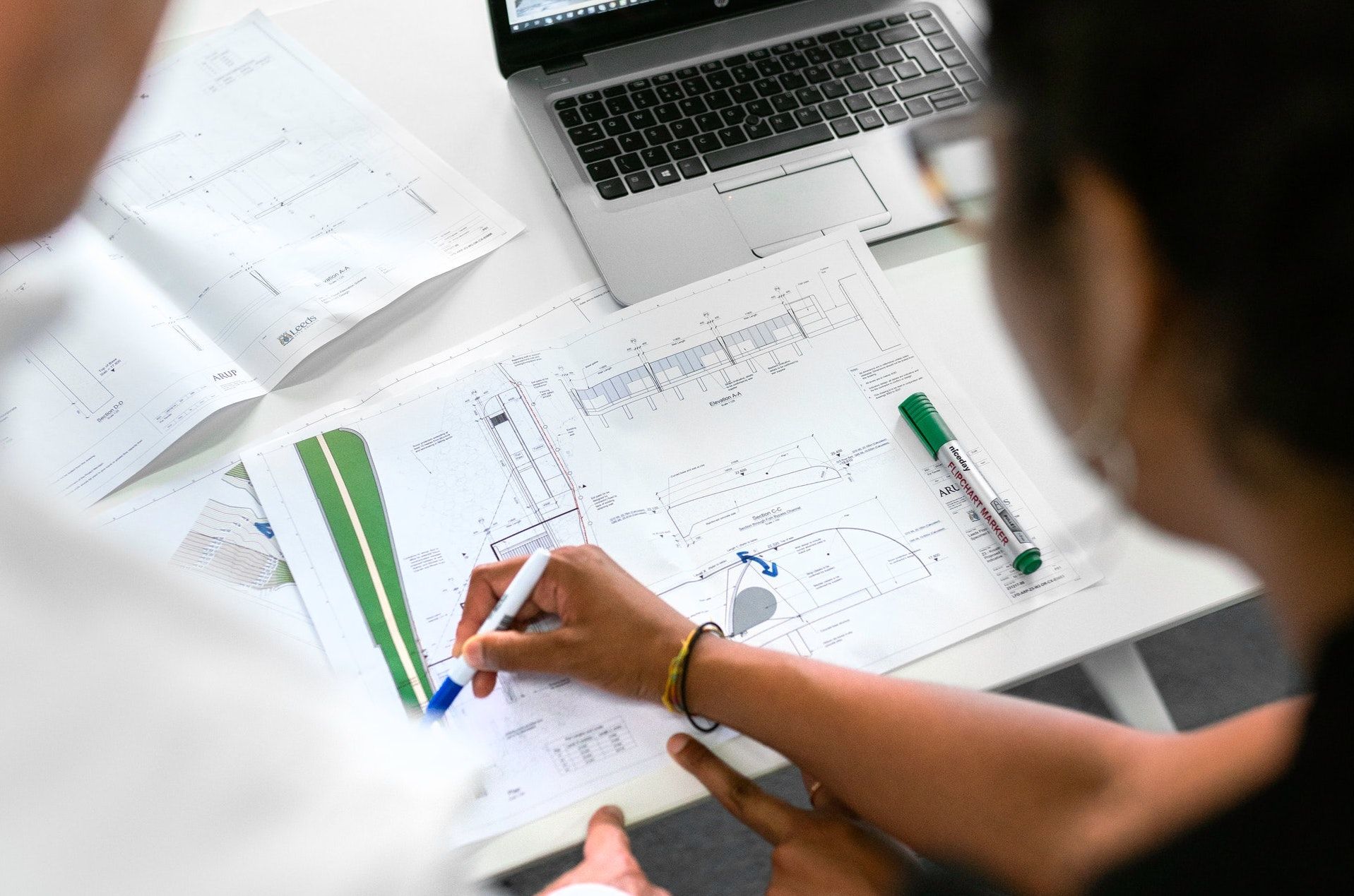

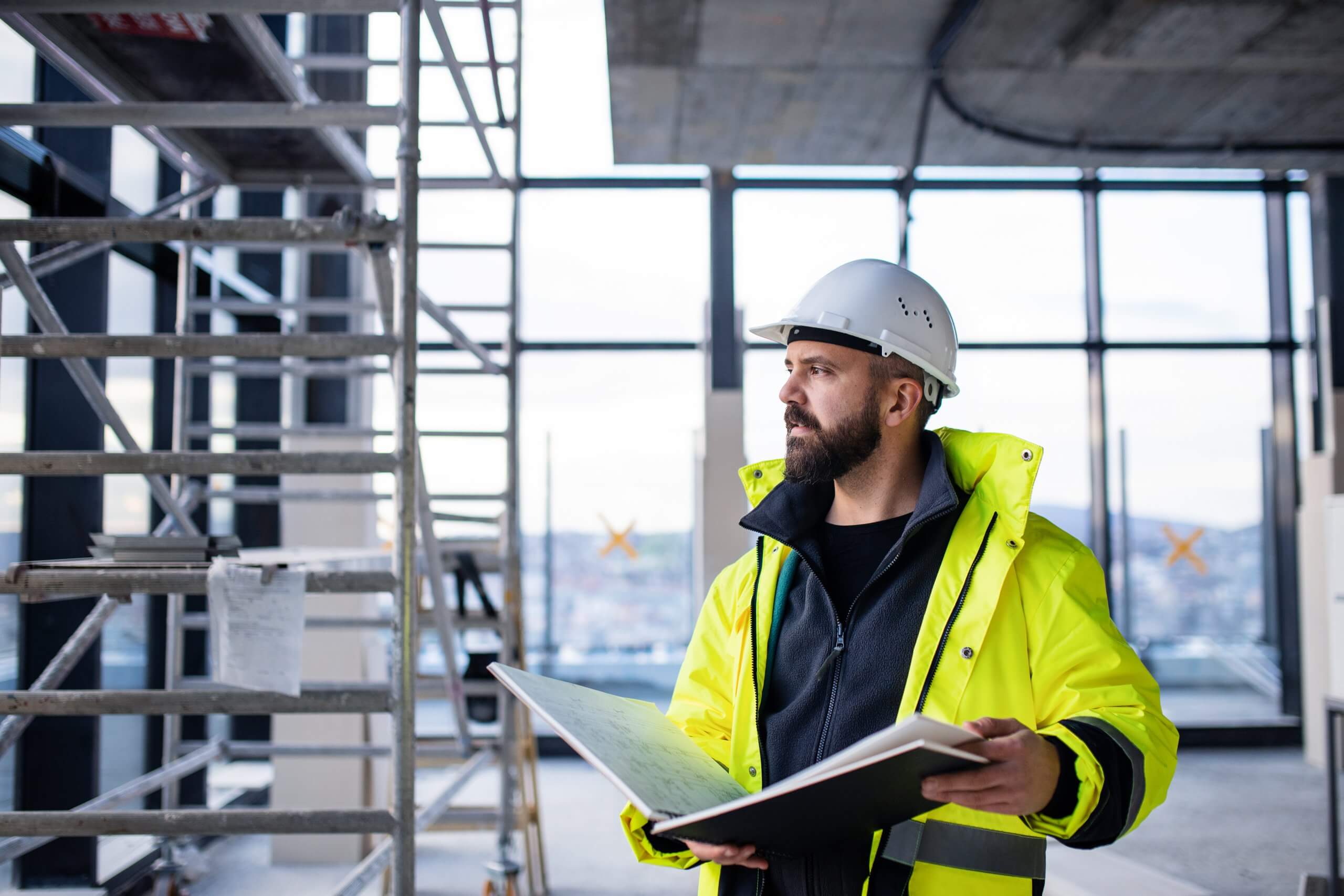

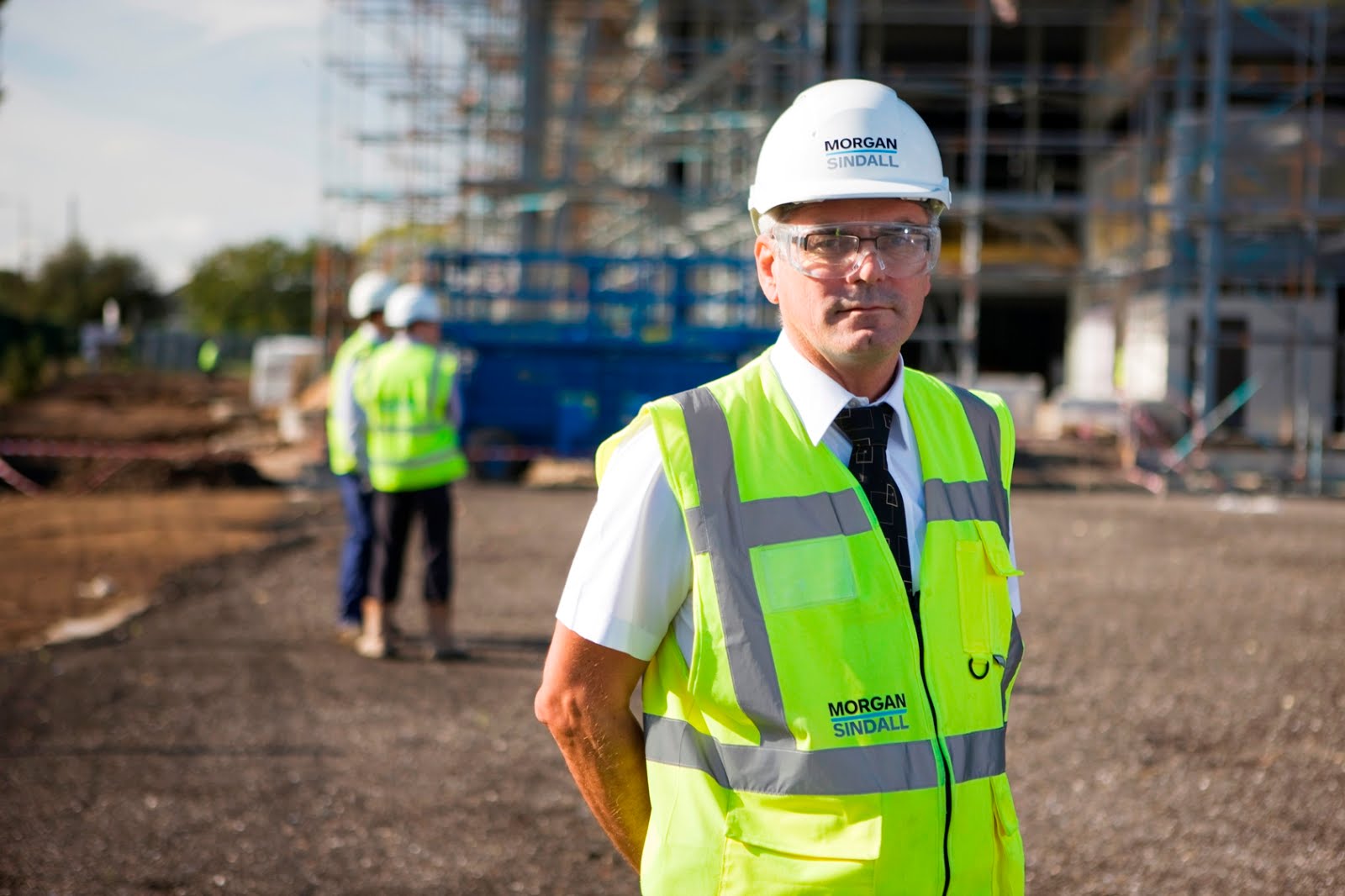
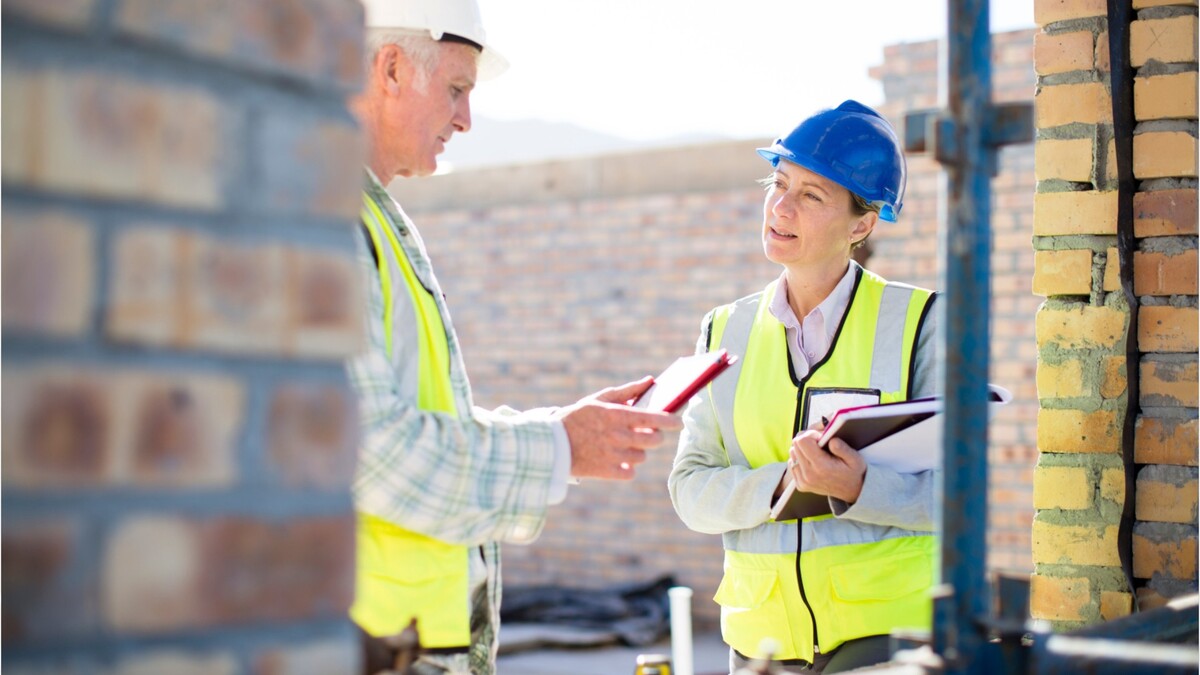
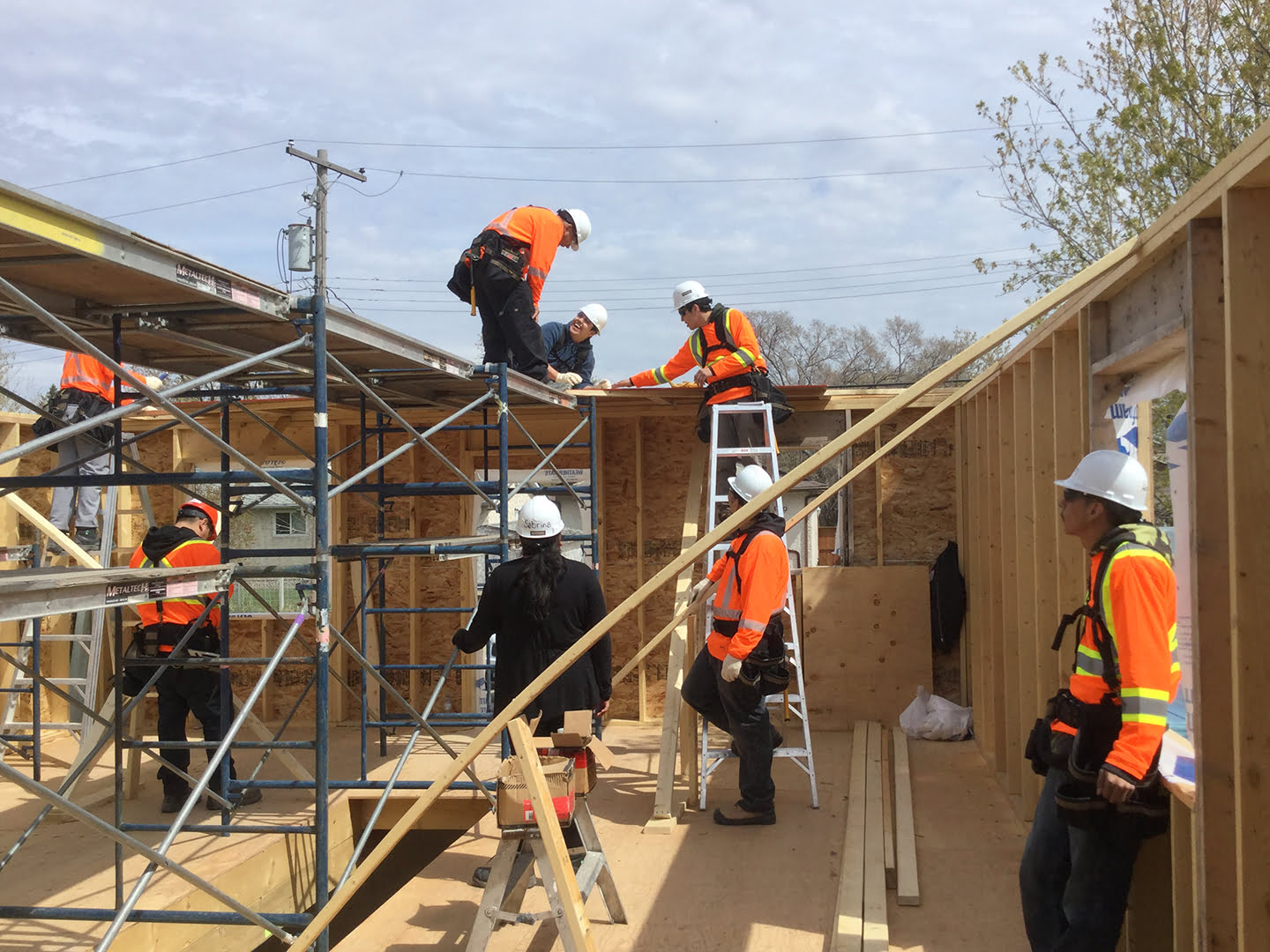






0 thoughts on “What Does A Construction Project Coordinator Do”